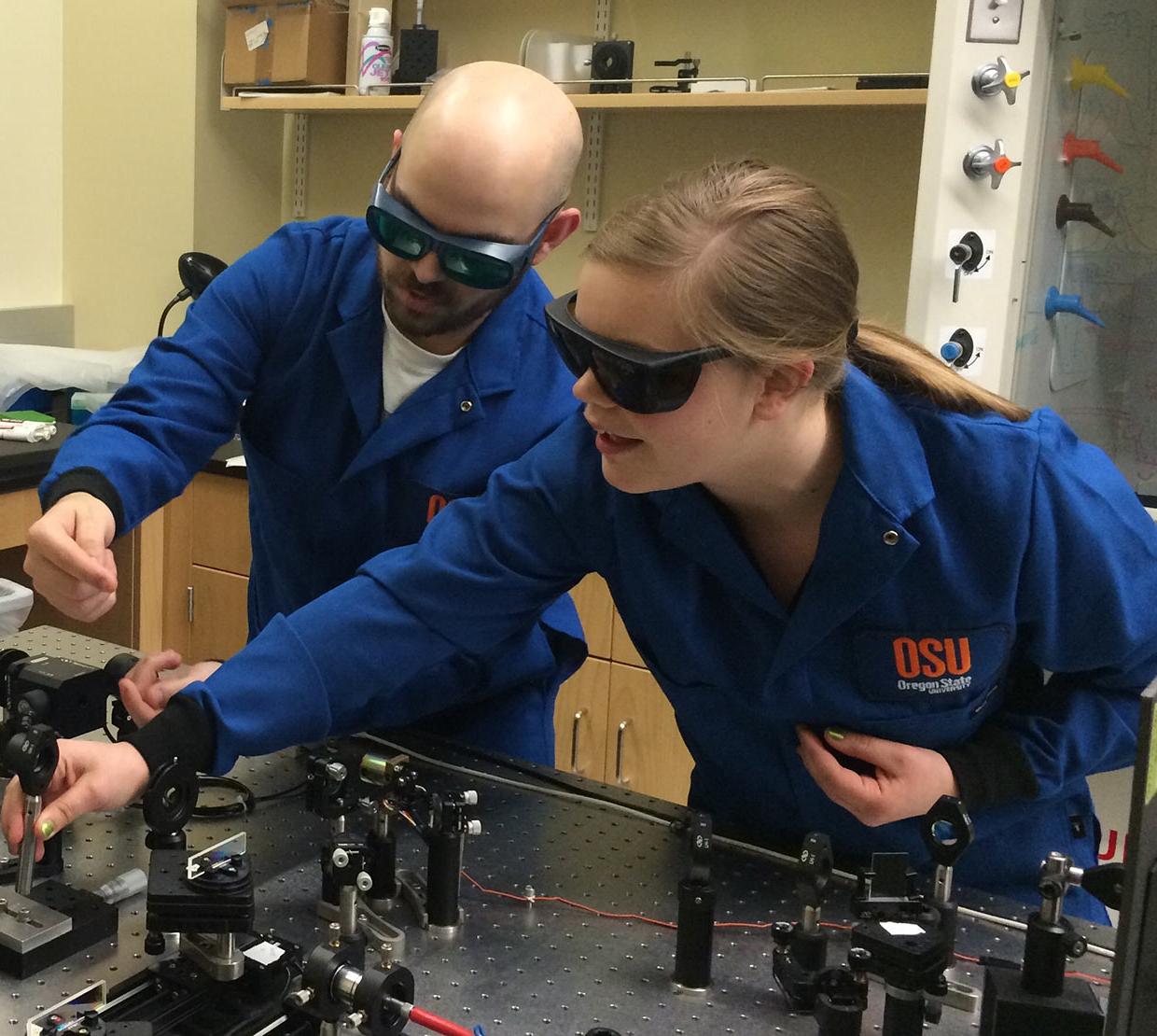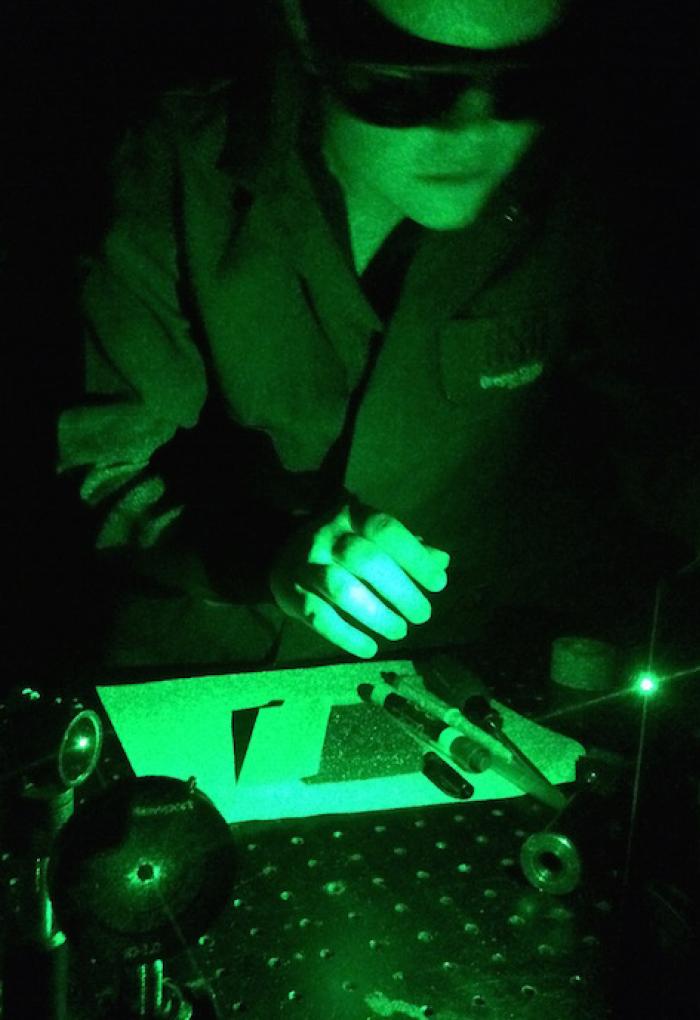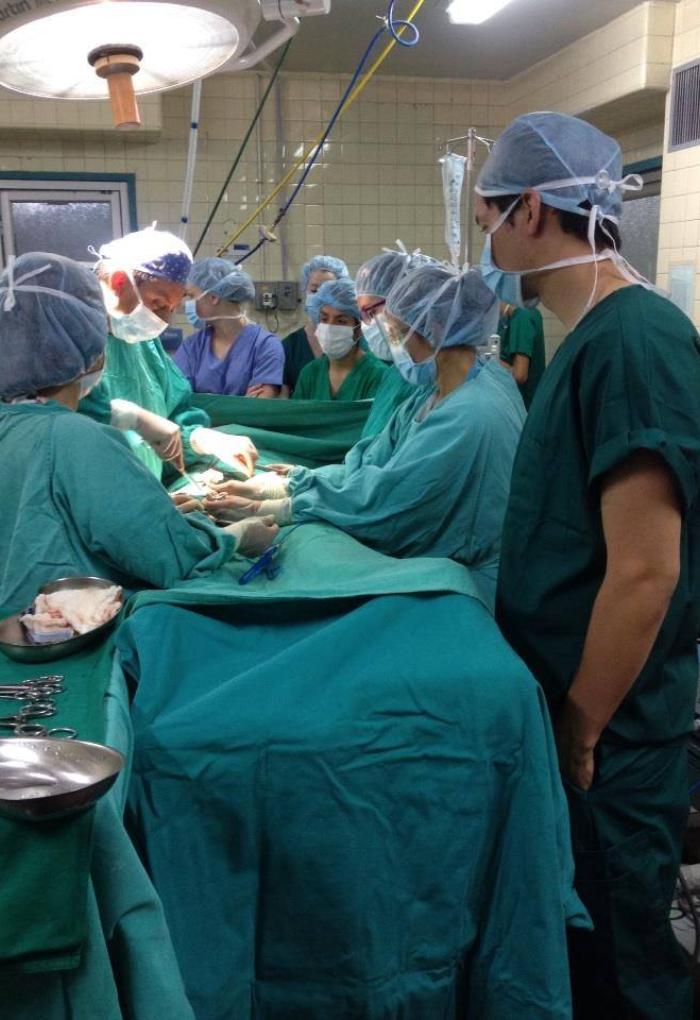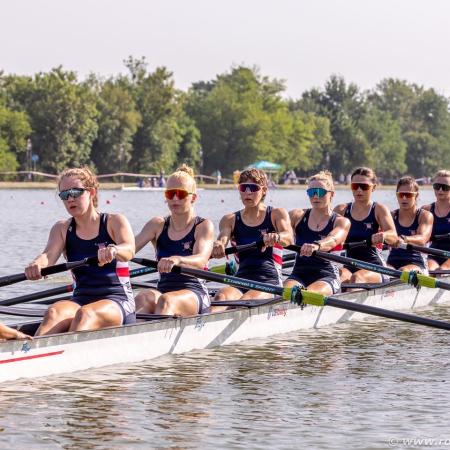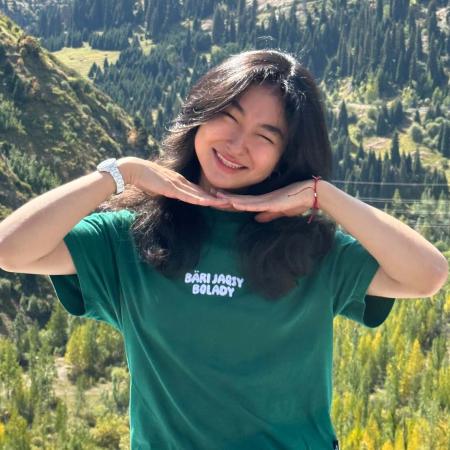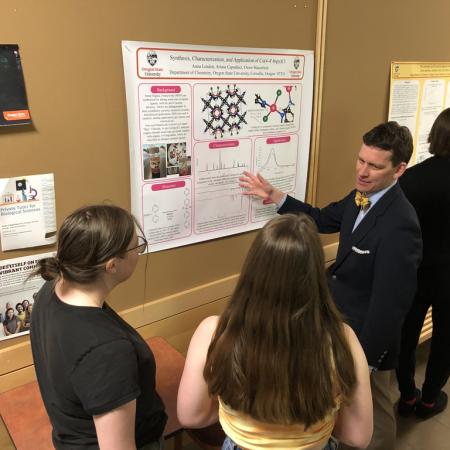During her three years as an undergraduate, Lansing managed to squeeze in a study abroad experience to Ecuador. She was able to observe surgery while there as part of her program.
Lansing says one of her most meaningful experience was volunteering at Free Clinics, run by Corvallis Community Outreach, a partnership between Free Clinics and emergency rooms in Linn and Benton Counties. Founded in 1972, the volunteer-run organization provides basic acute and primary care to people without Oregon Health Plan or private health insurance.
For Lansing, it has shaped the kind of physician she wants to become: one who is rooted in her community, mentoring young pre-med students as she was mentored, providing care to underserved populations. She also shadowed doctors as part of the preceptorship program in the College of Science.
After spending four years doing research in the lab, Lansing realized that she did not want a life of research.
“I learned a lot about a very specific area of chemistry. And it is important to me to make an impact. But I realized in the lab that it could take 20 years to make an impact or longer. Basic science research is far removed from the patient, which draws me to a career in medicine as opposed to academics.”
Armed with the knowledge that she wanted to help people and improve human health, Lansing was contemplating pursuing a Ph.D. and an M.D. It was at this crossroad in her undergraduate career that she wondered how it would be possible to balance all of that, knowing family was important to her.
She turned to those she looked up to most about how best to strike the right balance between clinical, surgical, research and family endeavors. Those who had an M.D./Ph.D. advised her to actively prioritize what matters most. For Lansing, that was family followed by clinical and surgical work.
That landed Lansing in OSU’s master of chemistry program, which allowed her to pursue research without spending five years working toward a Ph.D. There she would hone her critical thinking and communication skills so she would be better able to effectively convey information and knowledge to scientists and patients.
Completing bachelor’s and master’s degrees in four years is no small or easy feat. Lansing eagerly points to those who supported her journey, one that she says began in fifth grade.
Her fifth-grade math teacher noticed her aptitude for the subject and placed her in advanced courses. That decision enabled Shan to take advanced math and science classes which accelerated her progress and enabled her to take courses for college credit, bringing 96 credits with her to OSU. That enabled her to complete her undergraduate degree in just three years, not only saving her time but also money.
“Many people don’t realize that the University allows students to transfer 15 graduate credits (taken as an undergraduate) to a graduate program. This is how a typically a two-year program can be shortened into one year. It saves you so much time and money,” adds Lansing.
She created a PowerPoint and shared it with her advisor and other students in hopes it would help them navigate a clearer path to getting both a bachelor’s and master’s degrees in four years. If students are interested in pursuing a one-year master’s degree, Lansing encourages them to talk to their advisor and welcomes them to email her with questions at lansings@oregonstate.edu.
Guided by advisor Sean Burrows, Lansing successfully defended her thesis that focused on modifying a sensor that could potentially diagnose cancer before the disease expression but detecting microRNA. From her thesis, she says he learned about the types of cancer diagnostics and the work that goes into developing a clinical test.
Lansing plans to pursue a career as an oncological surgeon and hopes to employ a personalized approach to medicine.
Knowing success is as much failure as it is achievement, Lansing is grateful for the strong support of her parents.
“I am grateful that my parents allowed me to fail. They encouraged me to pursue my interests, to try things out, to be forgiven when things didn’t work out or to settle in when things feel right.”
And, she adds, “I know that a career in medicine will continue to push boundaries for me. I’m really excited for the future.”
Lansing pushed boundaries of her own thinking through her selection of which medical school to attend. She was accepted at both Dartmouth University’s Geisel School of Medicine and The Ohio State University College of Medicine. She critically considered her choices and selected Ohio State. It is not only home of the third largest cancer hospital in the nation, but it will also put her into contact with diverse patient populations at its eight hospitals and a deeper understanding of the health disparities that exist in underserved populations.
“I feel so honored,” said Lansing.
Lansing may be leaving us, but she will forever be part of Beaver Nation.
